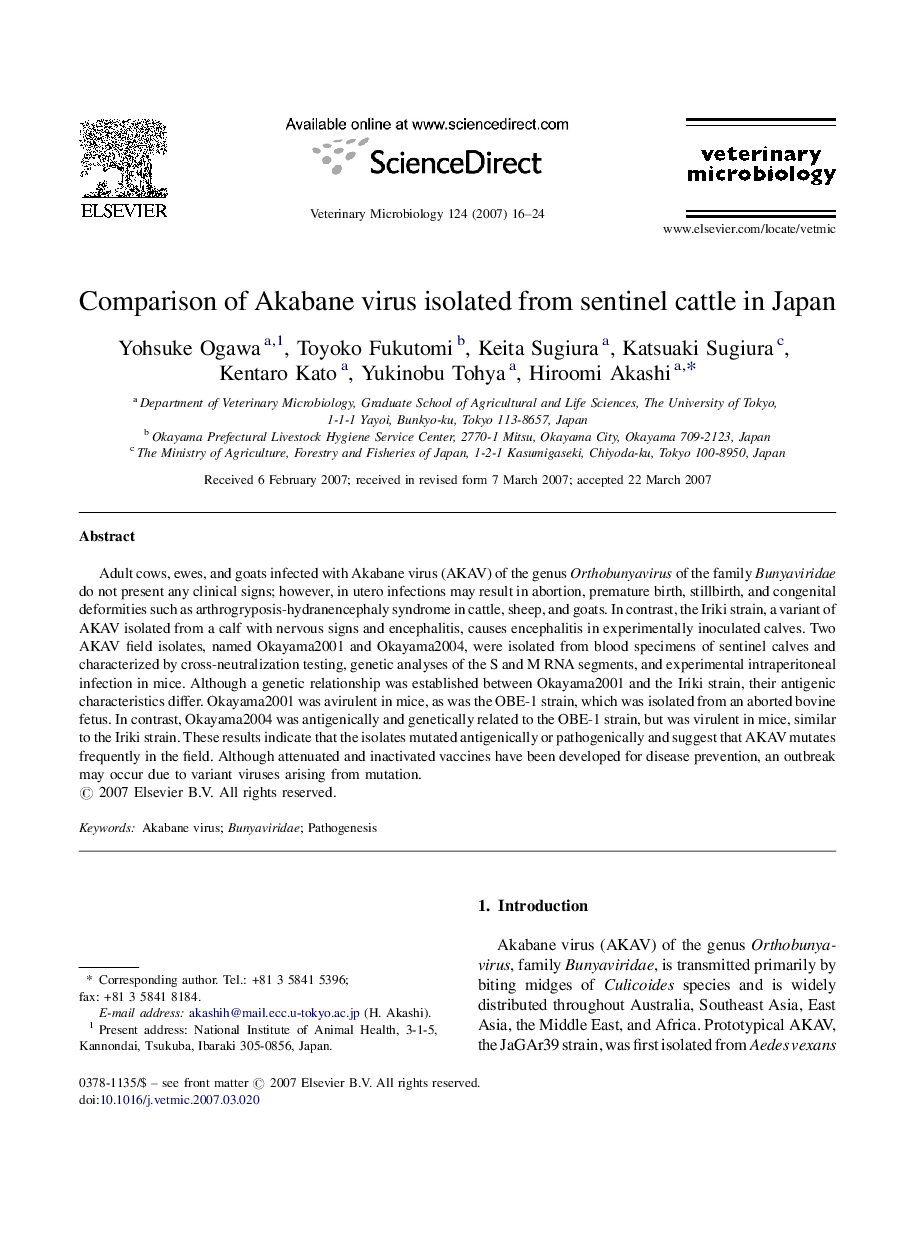| Article ID | Journal | Published Year | Pages | File Type |
|---|---|---|---|---|
| 2469216 | Veterinary Microbiology | 2007 | 9 Pages |
Adult cows, ewes, and goats infected with Akabane virus (AKAV) of the genus Orthobunyavirus of the family Bunyaviridae do not present any clinical signs; however, in utero infections may result in abortion, premature birth, stillbirth, and congenital deformities such as arthrogryposis-hydranencephaly syndrome in cattle, sheep, and goats. In contrast, the Iriki strain, a variant of AKAV isolated from a calf with nervous signs and encephalitis, causes encephalitis in experimentally inoculated calves. Two AKAV field isolates, named Okayama2001 and Okayama2004, were isolated from blood specimens of sentinel calves and characterized by cross-neutralization testing, genetic analyses of the S and M RNA segments, and experimental intraperitoneal infection in mice. Although a genetic relationship was established between Okayama2001 and the Iriki strain, their antigenic characteristics differ. Okayama2001 was avirulent in mice, as was the OBE-1 strain, which was isolated from an aborted bovine fetus. In contrast, Okayama2004 was antigenically and genetically related to the OBE-1 strain, but was virulent in mice, similar to the Iriki strain. These results indicate that the isolates mutated antigenically or pathogenically and suggest that AKAV mutates frequently in the field. Although attenuated and inactivated vaccines have been developed for disease prevention, an outbreak may occur due to variant viruses arising from mutation.
